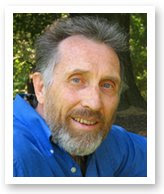Caught up in a happiness frenzy for much of the past decade, Americans have remarkably little to show for it. Herein we highlight the research that illuminates a more satisfying way to well-being.In a mere eight years, the number of books on happiness increased by 4000%. Even though the topic has been researched for more than 25 years, it has only become an official part of psychology in the last ten years. Once this research became public "experts" began to appear out of the woodwork. Much of what is available about happiness in books and on websites tends to be of the "quick fix" variety.
Often it tells you "what to do" instead of the "how to do it" of the psychological research. The science of happiness is interested in the details and methods that have proved to work better than placebo. It is how all science is done: use a control group, do the study more than once, and control as many outside variables as possible.
What is happiness about? This article tells us it "is not about smiling all the time. It’s not about eliminating bad moods." We make the distinction in The Worry Free Life between Big "H" and little "h." The distinction is important. Happiness (Big "H" variety) is like contentment, tranquility, or peace of mind. This is the happiness that psychology is interested in. Consensus on what is happiness is shared by many different people in many different fields: "neuroscientists, psychiatrists, behavioral economists, positive psychologists, and Buddhist monks."
The other type of happiness — the little "h" variety — is often equated with excitement, passion or pleasure. This type of happiness cannot be experienced alongside emotional discomfort. You either have one or the other. We often use little "h" to drive away discomfort. Discomfort can also drive away the little "h." In contrast, the Big "H" and discomfort can coexist. No matter how bad we feel, it is possible to have contentment exist underneath all the pain. As you can imagine, the little "h" is short-lived; the Big "H" can last a lifetime.
Ironically, happiness is never a goal but a side effect of engaging in behavior that moves us toward our goals. So many people think that happiness will be theirs when they get what they are going after. When they have achieved their goal, it dawns on them that they were happier while working towards and anticipating the goals. Is this why couples often reminisce about the early days of their relationship when they had no money and were struggling to define their life?
What about money? Does it bring happiness? Yes and no. It can bring enormous amounts of little "h" type happiness — and then it’s gone. It can have an effect on Big "H" if your life has been a struggle because the lack of money has interfered with being comfortable. After you have become comfortable more money has no effect.
You can increase your happiness quotient by what you do and what you think. Researchers have found that expressing your gratitude toward people can strongly increase you sense of happiness and well-being. Frequently engaging in acts of kindness, randomly or planned, has a positive impact on your happiness level. Being more happy is something you must do for yourself. Psychologist Sonya Lyubormirsky, a major researcher in positive psychology, tells us that "Becoming happier takes work, but it may be the most rewarding and fun work you'll ever do."
Your thought life can also have a dramatic impact on future happiness. Carefully replacing habitual negative thoughts and attitudes (our gift from cognitive-behavioral psychology) is one of the most effective techniques. Another technique is to learn to accept and not fight against healthy painful emotions. Even though you need to work at changing your unhealthy emotions such as depression and guilt, you want to use other techniques for managing healthy emotional pain like sadness and remorse. One of the most successful strategies is something called "mindfulness." Author Flora describes mindfulness as "a mental state of relaxed awareness of the present moment, marked by openness and curiosity toward your feelings rather than judgments of them."
Often we find the daily grind can shorten our perceptions of what life is all about. Sometimes it is helpful to look at the longer arcs of your life in order to realize that your life is more than the grinding routine. "Evaluate your well-being at the macro as well as the micro level to get the most accurate picture of your own happiness."
Finally, we know that part of living the happy life is to be yourself. Although this sounds simplistic it is difficult in a society where are continually being evaluated either directly or indirectly. Finding out who you are can be the beginning of happiness. At some point in the psychotherapy process my clients begin to discover their true self. It can be painful and scary, but an exhilarating step. This is often begun by uncovering one’s personal values and then learning to live out those values. This experience is not an "a-ha" moment but the beginning of a lifelong journey to a different place. The author of the Psychology Today piece puts it this way: "The state of happiness is not really a state at all. It's an ongoing personal experiment."



